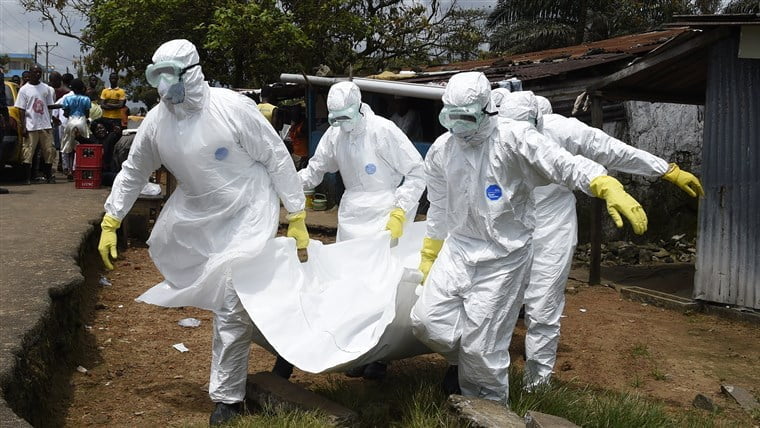The Ghana Health Service has tasked all regions, districts, and health facilities in Ghana to initiate preparedness and response plans for Ebola Virus Disease (EVD) prevention, following reported cases of the disease in Guinea.
Additionally, the Ghana Health Service has charged all regions, districts, health facilities, port health units at all border posts particularly along the Western border, and all landing beaches to heighten surveillance for the Ebola Virus Disease.
A letter signed by the Director-General of the Ghana Health Service, Dr. Patrick Kuma-Aboagye, informed all stakeholders in the health sector about the seven confirmed cases of Ebola Virus Disease in Guinea, on 14th February 2021, with three deaths from the disease.
The letter said: “… Ebola Virus Disease is a severe, often fatal illness in humans caused by the Ebola virus. The virus is transmitted to people from wild animals and spreads in the human population through human-to-human transmission. It can be transmitted through human contact with body fluids of a person infected with the virus. These body fluids include blood, saliva, vomitus, urine, sweat, and semen.
Major symptoms of the disease include fever, headache, fatigue, muscle pain, unexplained bleeding tendencies from nose, gums, vagina, skin or eyes, as well as vomiting and diarrhoea.”
The Director-General’s letter advised Ghanaians and all others residing in Ghana to protect themselves from the disease.
“The preventive measures include, 1. Avoid contact with blood and body fluids (such as urine, saliva, sweat, faeces, vomit, breast milk, and semen) of people who show any of the symptoms above.
2. Practice hand hygiene: frequent hand washing with soap and under running water or use an alcohol-based hand sanitizer.
3. Do not handle items that may have come in contact with an infected person’s blood or body fluids.
4. Avoid contact with dead bodies, including participating in funeral or burial rituals of suspected or confirmed Ebola cases.
5. Avoid contact with animals (such as bats or monkeys) Or with raw or undercooked meat.
6. Do not handle bushmeat (wild animals hunted for food).
7. Seek medical care immediately (nearest health facility) if one develops fever (body temperature 38 0C or above) or other symptoms such as severe headache, fatigue (feeling very tired), muscle pain. vomiting, diarrhea, stomach pain, or unexplained bleeding or bruising.”
Below is the letter from the Director-General of the Ghana Health Service:
Source: a1radioonline.com|101.1 MHz|Ghana


